Dialogue with the urban context for new energy: the Borgo Panigale cogeneration plant
Focus
Focus
Category Facet
Custom Facet
Search Results
-
Web Content Article on-date Aug 4, 2020 4:01 PM
From city to "smart city" thanks to data: with our detection systems we can monitor traffic trends, air quality and consumption of public parks.
utility4.0 Categoria Progetto: Innovation -
Web Content Article on-date Aug 4, 2020 3:46 PM
The Digital Workplace has transformed how we work, making office presence increasingly unnecessary, and fostering remote working and flexibility.
utility4.0 Categoria Progetto: Innovation -
Web Content Article on-date Aug 4, 2020 3:44 PM
Modena's smart purification plant is COSTANCE, the prototype of the purification plant of Granarolo dell'Emilia. Two outstanding examples of sustainable water resource management.
utility4.0 Categoria Progetto: Water Project Innovation -
Web Content Article · written-by Palvi Andrea Tonziello on-date Aug 4, 2020 3:40 PM
With our digital payment solutions, you can pay your bills quickly, easily and securely, directly from your smartphone or home PC.
utility4.0 Categoria Progetto: Innovation -
Web Content Article on-date Aug 4, 2020 3:28 PM
To obtain clean energy to power Ravenna's buses by decomposing waste in landfills.
circulareconomy Categoria Progetto: Innovation Circular Economy
Asset Publisher
District heating is already in itself a "sustainable" and environment-friendly solution, because it can guarantee better performance than traditional domestic boilers. In addition, the plant located in Borgo Panigale ensures lower emissions into the environment, more reliability and greater availability of energy. The system can heat the equivalent of 8,000 residential units. Currently, the turbines can produce 35,000 MWh of energy per year, almost twice as much as in the past.
When going by the roundabout between Via Prati di Caprara and Via Vittorio Sabena in the Reno di Borgo Panigale neighbourhood in Bologna, it seems like you are passing next to a gigantic colourful radiator. It has the appearance of a modern work of art, but instead it is the Hera Group’s new cogeneration plant.
This plant has changed the face of the entire neighbourhood since it was inaugurated in October 2017. Its characteristic element is the elliptical structure covering the stack of the plant. It consists of 576 plates of colourful porcelain stoneware arranged on multiple overlapping rings that create a combination of colours and light with the nuances typical of the city of Bologna: brick red, ochre yellow, tuff yellow, dark brown and rust.
Hera’s undertaking for an efficient district heating system
The Cogen plant, which stands in Via Paolo Nanni Costa, is not only Hera’s jewel from the architectural viewpoint - perfectly integrated with the new urban context of the neighbourhood - but is also the Group’s pride and joy from the production viewpoint. Entirely designed and built by Heratech, the engineering essence of the Hera Group, the plant produces energy in cogeneration, meaning both electricity and hot water necessary for the district heating network. Built thanks to an investment topping Euro 17 million, the plant heats the equivalent of 8000 housing units and currently the turbines produce up to 35,000 Mwh of energy a year, almost double that of the past.
District heating is already in itself a “sustainable” and eco-friendly supply because it is able to guarantee greater efficiency than the traditional household boilers. What’s more is that the plant guarantees less atmospheric emissions, greater reliability and a higher availability of energy with 90% efficiency.
What does all of this mean in terms of benefits for the environment? It is like planting 25,000 new trees every year. Or stopping the flow of traffic of 8000 vehicles during the same period.
Technology, efficiency, reutilisation of the land
The use of advanced technology and energy efficiency are therefore the cornerstones of this work, in line with Hera’s mission for sustainable development. But that’s not all. The new Cogen district heating plant made a remarkable impact also in terms of land reutilisation. Built on the site of the thermoelectric plant in operation since the 1990s, the Cogen plant allowed the plant in Via Segantini to be shut down and today only one plant is able to cover the same requirement guaranteed by the two of the past. (is it advisable to say that?) Yes, I think so
This is an enormous goal that Hera has met, which sets upgrading existing facilities one of its primary objectives. If the percentage of land reutilisation was 77% in the Group Sustainability Report closed in 2019, the development of the network works and of plants presently in progress and included in the 2020-2023 Industrial Plan will allow 73% of reutilised land to be guaranteed. (data updated to 2019).
The undertaking of the Hera Group for energy efficiency
The Borgo Panigale Cogen plant is part of the 343 interventions forming the plans for improvement of Hera, Inrete, AcegasApsAmga and Marche Multiservizi at year-end 2019, and that will allow consumption to be cut by 13,740 Tep (-5.9% energy consumption compared to 2013), passing the target set for 2020 by -5%. (data updated to 2019).
The Bologna Cogen plant in figures:
- 8,000 housing units served
- 35,000 Mwh energy produced each year
- Euro 17 million invested
Search Bar
Tag Facet
Search Results
Asset Publisher

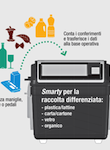

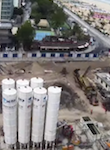
.png/02684bcc-be33-3bb3-daf4-5f1a2d9dac74)
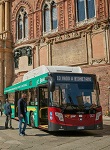
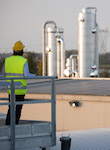
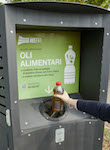
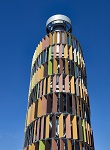
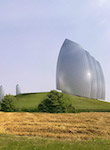
.jpg/468d051b-ba80-83a6-359d-7ef55eefd940)
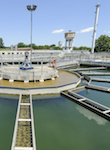
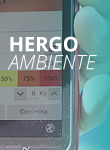
.jpeg/1d0e0770-1094-b22b-fce4-099f27c72978)